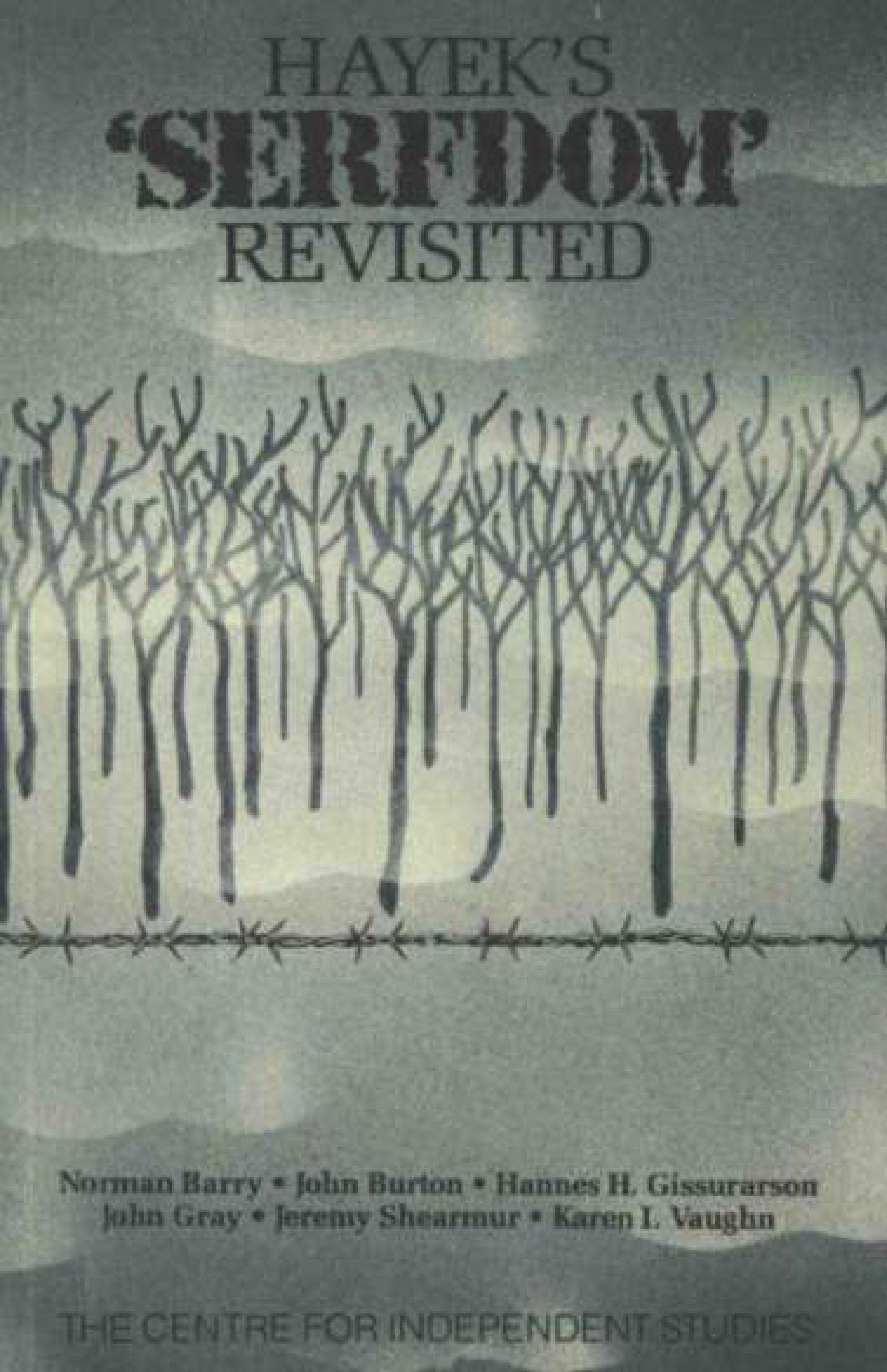
Champions of a cause have always been easy victims of the authoritarian tendency to worship their predecessors in the good work. Modern liberals are — rather ironically — as good examples of this as their left- and right-wing opponents, and they are thus markedly different from one of their more immediate spiritual fathers. F. A. von Hayek. For although Hayek will occasionally wax lyrical in his discussion of what he considers the liberal tradition, he never replaces argument by reference to authority; and, although one may often want to query his identification of the liberal tradition, one is never in doubt about his respect for the complexity of history.
Hayek’s use of the history of political ideas is in fact a very important feature of his work, not just — and, perhaps, not so
much — because of its value as intellectual history, but because of the light it sheds on his own ideas. It makes it even clearer than it otherwise would be that, more than any other modem liberal. Hayek stands squarely within the mainstream of traditional political thought as far as his concepts and problem-situation are concerned. This was already apparent in his first major excursion into political theory some 40 years ago (The Road to Serfdom. 1944) and it has become ever clearer in his subsequent essays and two central treatises (The Constitution of Liberty, 1960, and Law, Legislation and Liberty, I-III. 1973-79).
One could of course give many examples of this, but in view of the course which the debate about Hayek generally has taken, it may be most pertinent briefly to make the point that basically his is a theory of government and law. This is not to be taken in the
trivial sense in which an anarchist theory is about government — namely about its absence. Hayek’s idea of government is highly positive, for government is the provider of a large number of goods, both the extremely complex set of goods that have individual liberty as their kernel and are the basis for most other human goods and the array of ad hoc supplements the marketplace is always in need of.
Further, in the world we know, these goods can be provided only by government, and they can be provided only by strong government. This may sound surprising in view of the popular image of Hayek as a minimal-state ideologue, but this view is very misleading. Although Hayek thinks that most modem governments in the developed world ought to be slimmed down,
he does not simply want to minimalisc government as an objective in itself, but rather to find the level of government activity that is most beneficial in the long run — and that is a good deal more than the ‘minimal’.
